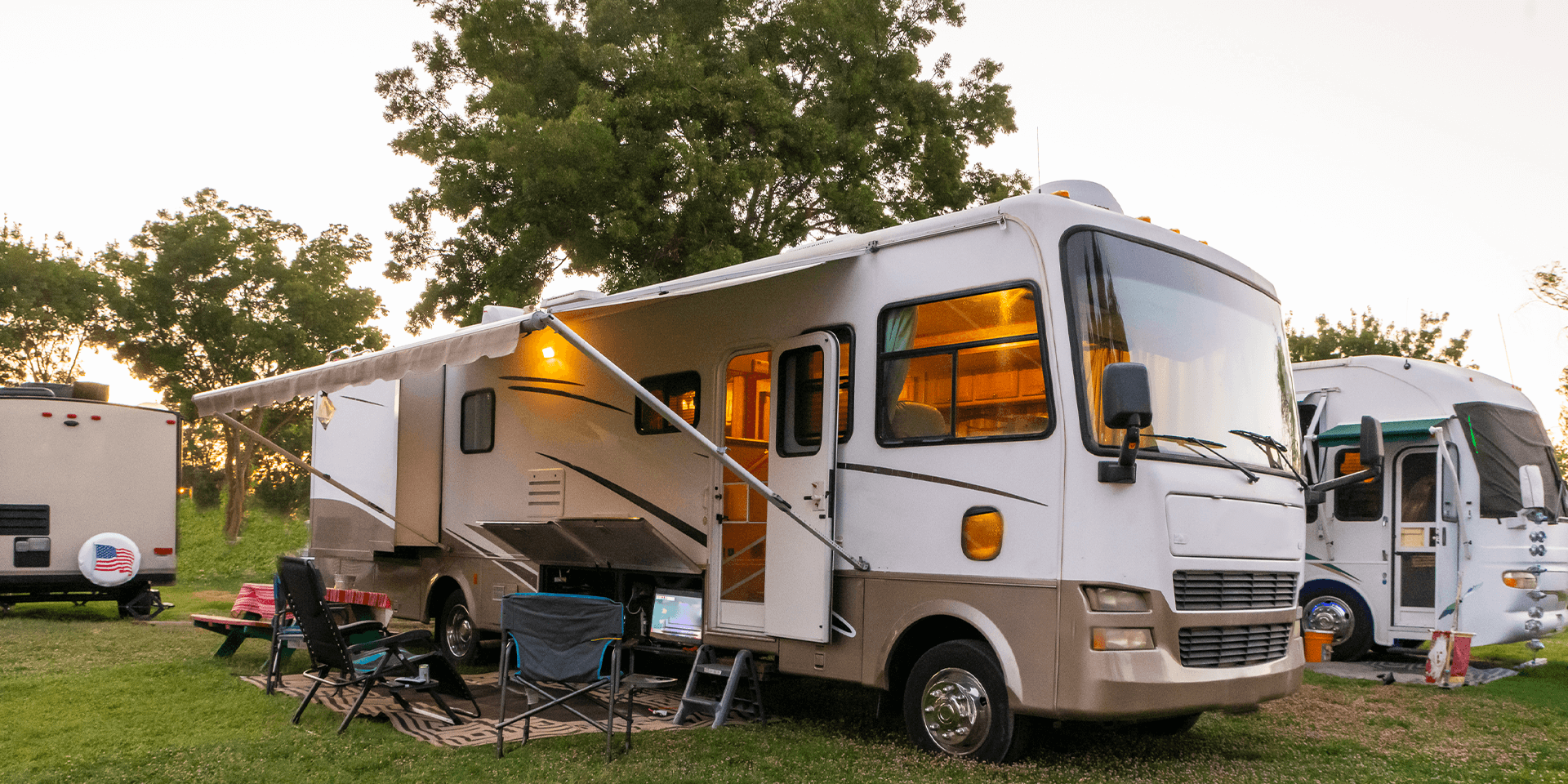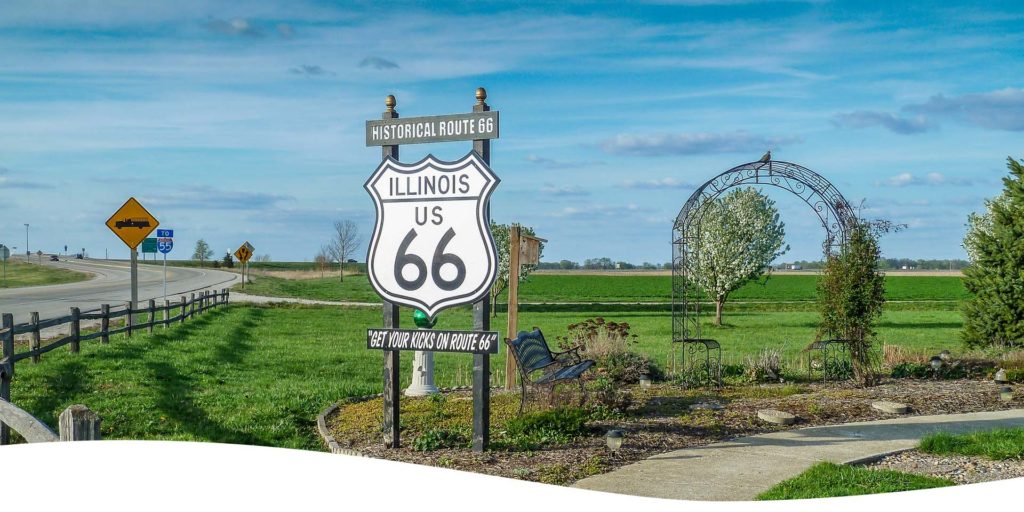Quick Navigation:
- The Advantages of Buying a Used RV
- How to Buy a Used RV
- What Should I Look for When Buying a Used RV?
- What to Ask Before Buying a Used RV
- How to Buy a Specific Class of RV
- Frequently Asked Questions About How to Buy a Used RV
RVing is a favorite travel method and lifestyle for many Americans. The appeal comes from being able to camp in your private space with the luxuries of a house. The cost of a new RV can be more than what you might have expected, making you question this dream. Fortunately, the large market for used RVs can make it a reality.
If buying a new model is outside of your budget, start shopping to purchase a used RV instead. Used RVs can be nearly brand-new and come with the same amenities that make RV life so alluring.
Below is more information to help you find the perfect RV.
The Advantages of Buying a Used RV
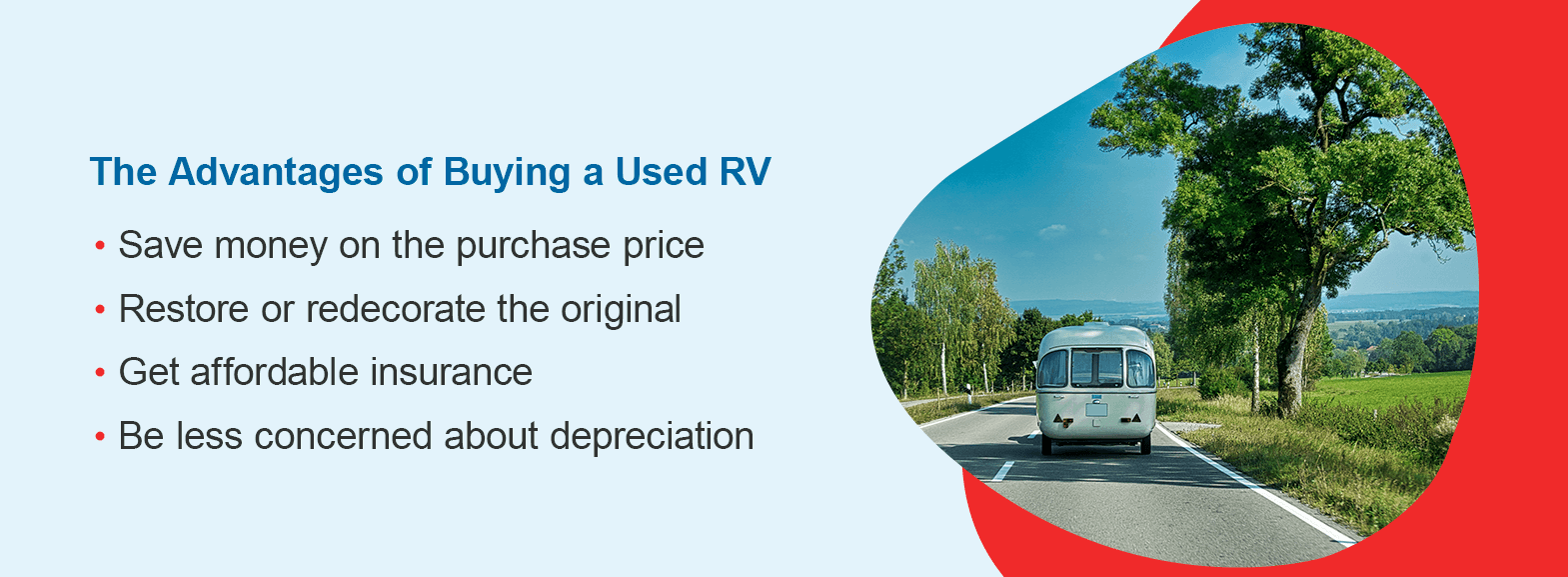
For many RVers, buying used is the best way to afford the lifestyle.
Buying used allows you to:
- Save money on the purchase price: The used model should be more affordable than it was when new. However, RV costs vary greatly, so you will see that some used RVs are worth more than new RVs from other classes.
- Restore or redecorate the original: Owners sometimes enjoy customizing their RVs, and buying a used model makes a good justification for redoing the interior.
- Get affordable insurance: Your insurance premium should be lower for a used RV than for a new RV of the same class.
- Be less concerned about depreciation: A used RV has already depreciated to a degree, making it more affordable to buy.
How to Buy a Used RV
Before you start browsing RV shopping websites or head to your local RV center, take a few preliminary steps to make sure you know what to look for. When buying a used RV, a checklist can help. The below list covers important preliminary steps and things to check for when buying a used RV:
1. Do Research on RVs
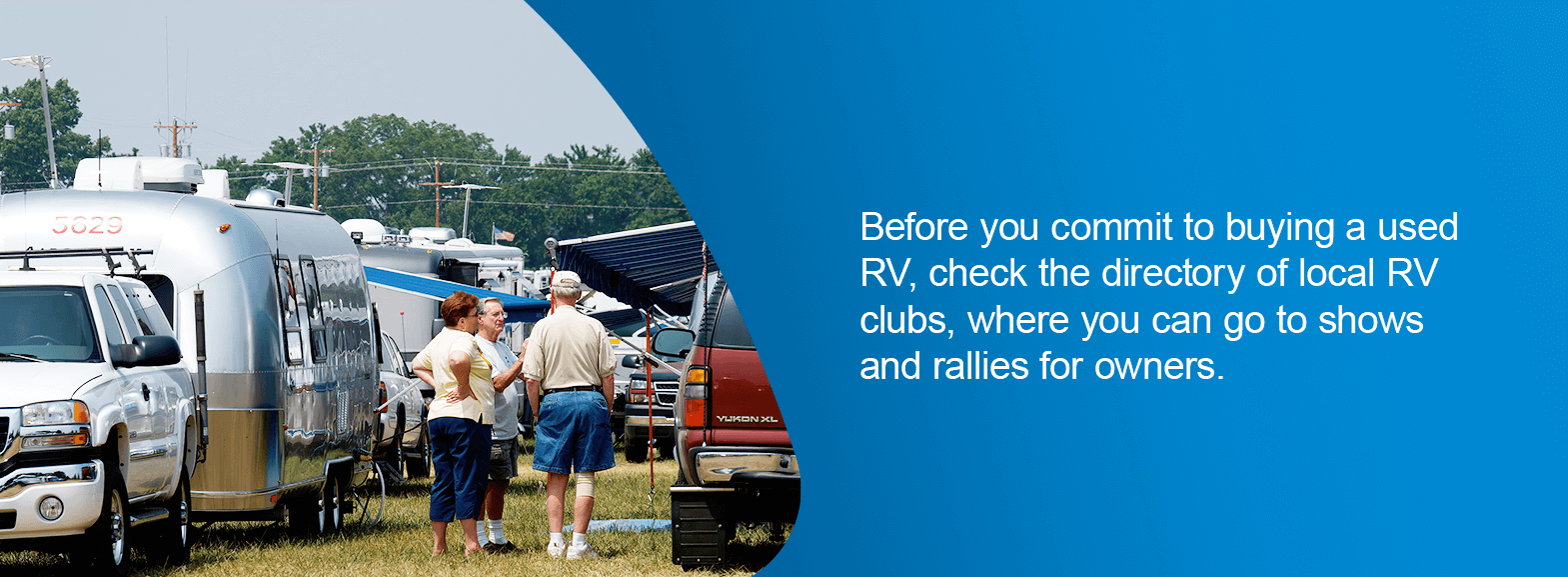
Unlike finding a new RV at a manufacturer's lot, looking for the perfect used RV involves researching the specific vehicle's history. With a new RV, you can just research the model and manufacturer. But you want to know if the used RV you're interested in has been taken care of and will last a reasonable amount of time before you need to make extensive repairs.
Before you commit to buying a used RV, check the directory of local RV clubs, where you can go to shows and rallies for owners. Joining an RV community is a good way to learn more about the model you're interested in, including how to tell when a used RV is a worthwhile purchase.
When you find a used RV you're interested in, consider getting a professional RV inspection completed to determine the vehicle's condition. An inspection will help you identify any major issues before making the purchase.
2. Get the Kind of RV You Want
With the popularity of RVs, plenty of used models are on the market, so it's important to go for the one you want instead of the cheapest deal you can get. Some used RVs have a higher market value than certain new models, especially if they are only a few years old. If you are unsure of which RV you want, test a commonly sold model by renting it first.
Prospective RVers are better off getting an affordable model with the amenities they expect rather than any model the previous owners are willing to let go of. RV classes are best suited to different lifestyles. For example, a used Class A makes a good bargain if you're planning to use the RV for the occasional vacation rather than driving it frequently.
3. Be Cautious About Bargains
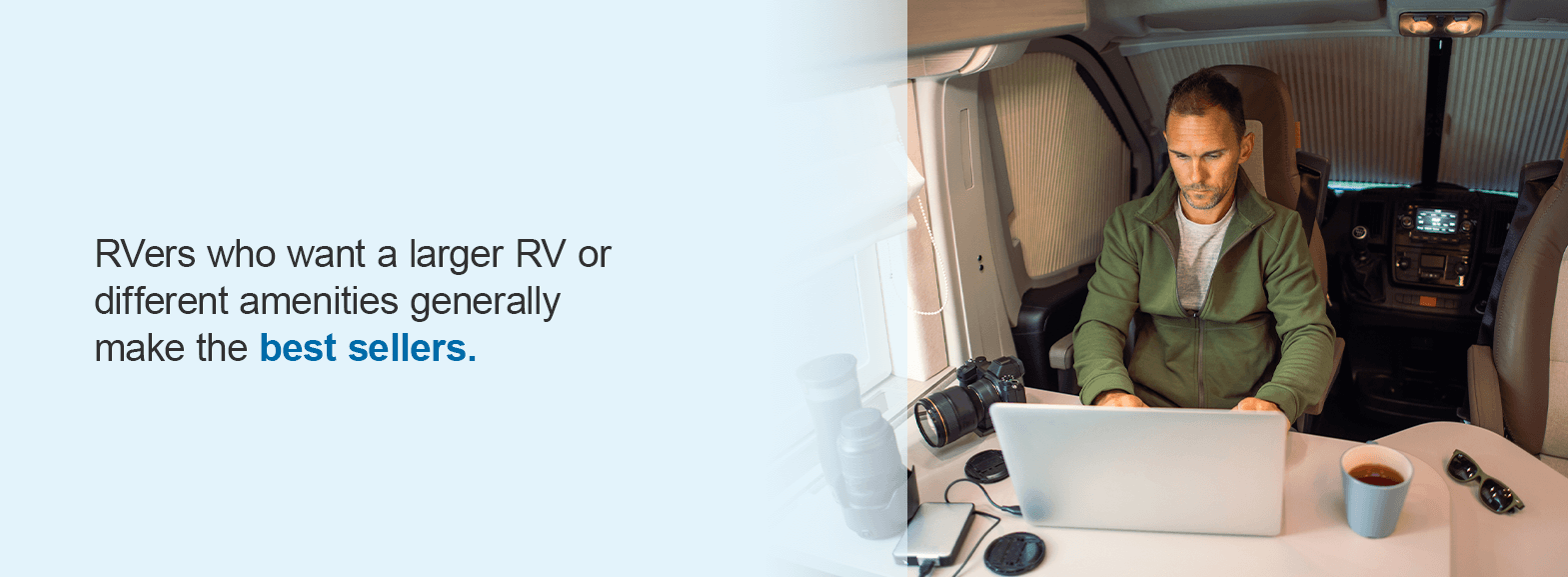
Many RVers will trade or sell their RV for an upgrade, leading to prime buying opportunities. Other RVers wait until their RV is undrivable, which is a deal you want to avoid. RVers who want a larger RV or different amenities generally make the best sellers.
Although being cautious is always advisable when you're looking for a big-ticket item like an RV or a house, it is possible to find an impressive bargain. Some people will sell an RV for less than its value because they need to get rid of it quickly or because they lack knowledge of its worth.
4. See the Used RV Before You Buy It
Always view the RV before agreeing to make a transaction. It could look great in the pictures, but when you go to view the RV, you will notice if the pictures were taken strategically.
Avoid making a deal with a seller who refuses a walkthrough. This is always a bad sign regardless of the seller's excuse, and your best option at that point is to walk away. Regardless of how cheap the deal is, buying a lemon is a costly mistake.
You should also take photos of the RV during your walkthrough. Take pictures of the interior, exterior, engine and the Vehicle Identification Number (VIN) on the unit. If you require a loan to buy an RV and the lender requests certain conditions or VIN information, you will have everything you need to proceed.
5. Check the RV for Mold
One potential problem that a used RV might have is a mold infestation. Mold can form in the interior even without visible water damage. If you spot mold, however, this is a red flag that could mean the RV has a water leak or plumbing issues. Alternately, it could mean that the owners left food and soiled items inside the RV for extended periods without cleaning.
To check for mold:
- Smell the air. Mold usually has a noticeable musty odor.
- Look at the corners of rooms where the ceilings and floors meet the walls.
- Examine the caulk in the bathroom areas around fixtures and other places with plumbing.
- Open up the cabinets. If they feel warm inside, mold could be growing there.
- Look inside the closets with a flashlight.
6. Check the RV for Water Leaks
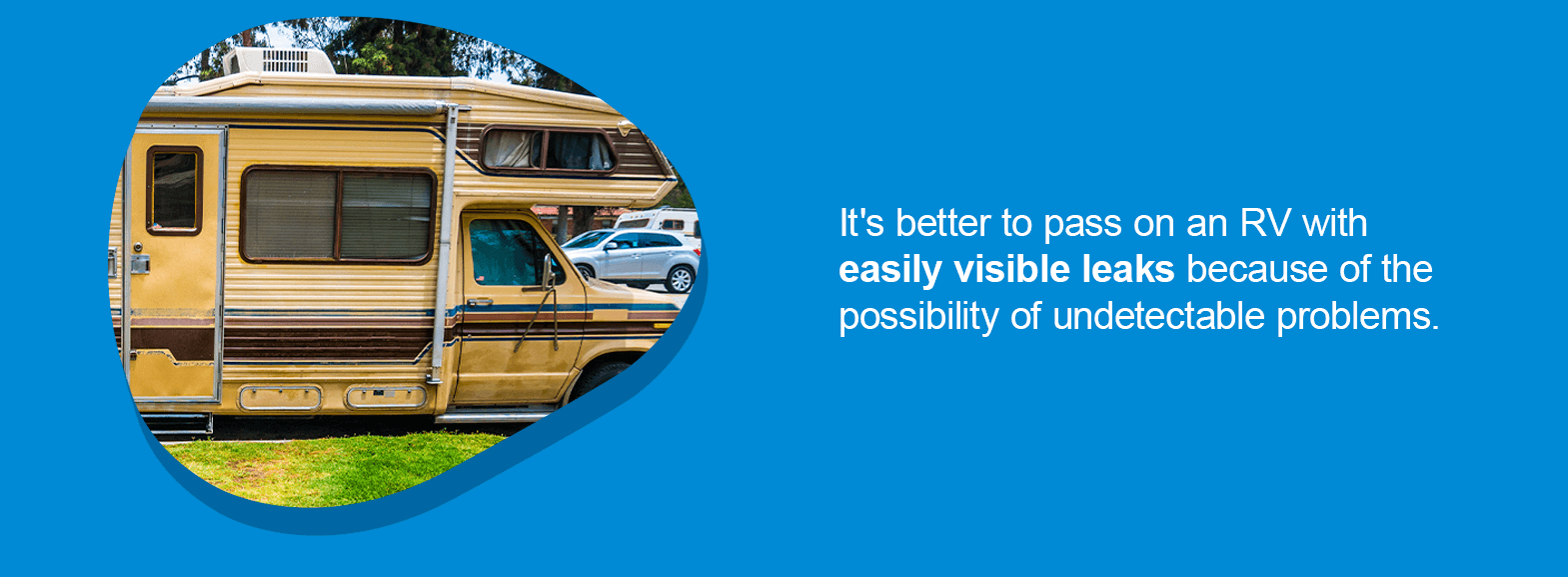
Some leaks can be patched with caulk. If you see visible water damage, it could mean that the dated plumbing needs to be replaced. The fewer repairs you have to make, the more money you will save. It's better to pass on an RV with easily visible leaks because of the possibility of undetectable problems.
To check for leaks:
- Look for brown spots on the ceilings and floors.
- Examine places where the floors meet the walls.
- Look for places where the ceiling is bowed.
- Open the cabinets to look for damaged wood or wet places.
- Test the firmness of the floors by jumping lightly around the kitchen and bathroom area.
- Look at the screws under the exterior trim for rust or corrosion.
7. Check the Roof of the RV for Damage
If you see damage on the RV's exterior, it could be a sign that the owners were unable to afford repairs. The exterior is the first thing a prospective buyer sees, so if the seller made little effort to preserve it, the interior might also have problems that have gone ignored.
Take a walk around the motorhome's exterior and:
- Check the caulk around the skylight and vents for how well-sealed they are.
- Look for blackened or moldy caulk. This could be a sign that water has been getting inside.
- Walk carefully on the roof if the seller will allow it to see if it's stable and firm.
What Should I Look for When Buying a Used RV?
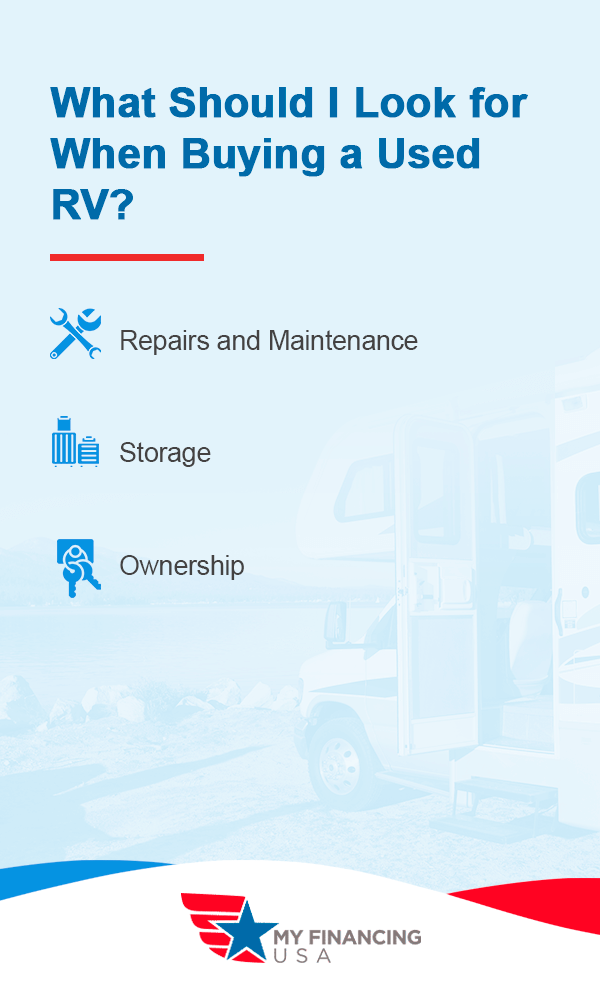
When you find a used RV model that fits in your price range, you might get excited and start imagining yourself driving it off the lot. Then you stop to think, "Should I buy a used RV, or should I wait to buy one new?" Many RVers get the same usage out of their RV regardless of whether it is new or used, and some even prefer to buy used RVs instead of the latest models on the market.
What you should look for when buying a used RV is much more than the price tag, however. It's important to check for the following:
Repairs and Maintenance
If the vehicle is older and has accumulated many miles, you can still drive it if the previous owners took proper care of it. To check an RV when buying used, take these steps:
- Check the RV's records and related paperwork to know how well the previous owners kept up with routine maintenance.
- Check how old the tires are, and ask about possible damages.
- Ask about the winterizing habits of previous owners.
- Look for updates like bearings, roof repairs or water damage repairs.
Storage
If the RV has sat outside for many years without being protected from the elements, it is unlikely that it will still be in good condition. Find out the following:
- Where the RV has been stored
- If the RV has been in covered storage
- If the RV has been exposed to severe or harsh weather conditions, including direct sunlight and summer heat
- How frequently the RV has been used between storage periods
Ownership
An older RV with low mileage and rare usage might seem more appealing, but this could also mean the vehicle has problems. When owners frequently use the RV, they tend to keep up with maintenance better and fix problems that come up.
Ask about how many previous owners the RV has had, as well. If the RV has changed hands many times, parts of its history might be impossible to know. If you can, speak to the owner directly and ask if they know who they bought the RV from.
What to Ask Before Buying a Used RV
When you're making a big-ticket purchase, take your time looking and be patient with finding the right option. To help guide the process, consider some questions to ask before buying a used RV. You can ask your sales agent or the previous owner these questions:
Why Should I Buy This RV?
Learn what the RV's best features are. What did the previous owners use it for? Does it sound like you want it for the same reasons?
Ask this question of yourself, as well. If you want an RV to make storing your camping equipment easier, then you'll probably prefer a travel trailer, fifth wheel or another small towable RV. If you're planning to camp regularly throughout the summer with your family, then a Class A or a Class C on the larger side would work best.
Is the Warranty in Date?
The manufacturer's warranty typically expires after one to three years. The appliances might have their own warranties, which usually expire earlier. The manufacturer is unable to fix structural problems after the warranty expires, and if you're buying used, this is always a risk. The good news is that you can always purchase a third-party warranty plan to cover major repairs. See if the sellers have the RV under warranty before getting your own.
What Problems Have the Owners Noticed?
The sellers are required to disclose problems that have been discovered during an inspection. If they have records for repairs made by a mechanic, you can also get information from these reports. You want to avoid hidden costs if possible.
You could buy a used RV thinking it seems to be in good condition only to discover a week later that the wiring needs to be replaced. Having to make extensive repairs could quickly result in the RV costing more than you anticipated. This is why it's important to investigate an RV before you buy it.
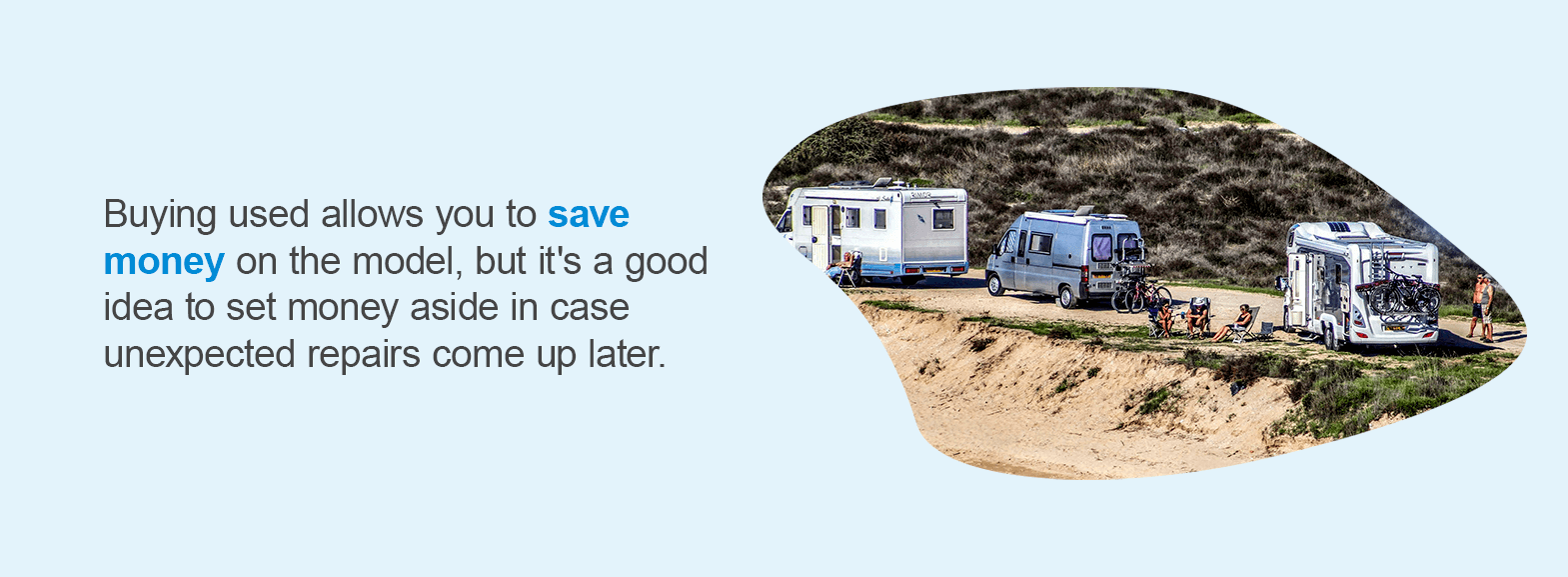
Buying used allows you to save money on the model, but it's a good idea to set money aside in case unexpected repairs come up later.
How to Buy a Specific Class of RV
You would generally take the same, consistent steps when looking for a certain class or model, but below are tips for buying a certain used RV:
How to Buy a Used Class A RV
Class As are larger RVs you can fully stock. When browsing for a Class A, you will generally be in the highest possible price range in comparison to other drivable RVs. When shopping for a Class A:
- Do a walkthrough: Test the faucets, wall switches and other features to make sure everything works. If something fails to turn on, ask the owner or representative about it.
- Go on a test drive: Class A RVs are large and steer slightly differently from a car. Before you commit to a Class A, see if driving one is for you.
- Count the beds: Many Class As have ample sleeping space, but some have fewer beds than others. Make sure you're getting enough room for everyone.
- Consider the type of fuel: Many Class As run on diesel, but some take gas. The gas mileage of a Class A will be low, around eight to 13 miles per gallon, though larger vehicles can have even lower mileage.
How to Buy a Used Class B RV
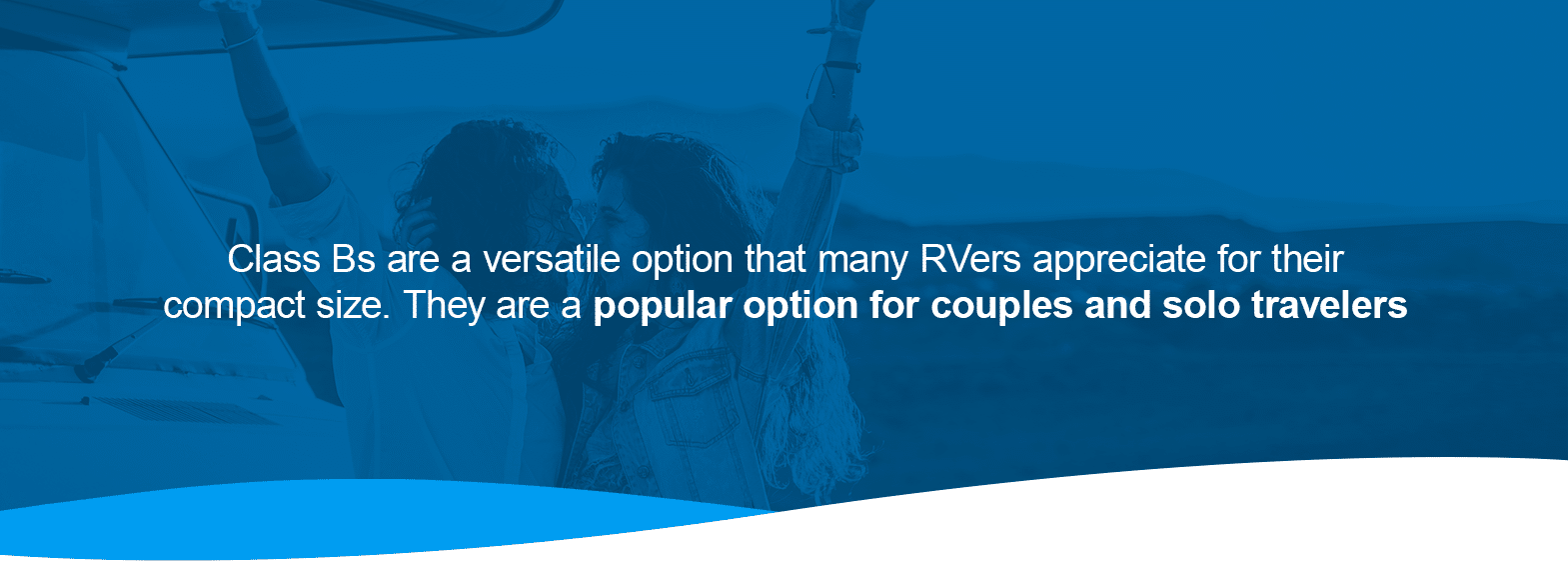
Class Bs are a versatile option that many RVers appreciate for their compact size. They are a popular option for couples and solo travelers. When shopping for a Class B:
- Do a walkthrough: Test all fixtures and look for mold and damage as you would with any RV.
- Go on a test drive: Class Bs are supposed to feel similar to driving a van and should be easy to steer and brake.
- Check the amenities: Some Class B RVs come with a TV and wall outlets, and others are more minimalistic. Make sure the Class B has the amenities you want.
- Consider the type of fuel: Class Bs might run on gas or diesel, so if you prefer a specific kind, double-check.
How to Buy a Used Class C RV
Class Cs are larger than Class Bs with a similar structure. They have additional space in the above compartment that might include an extra sleeping area. When shopping for a Class C:
- Do a walkthrough: Check the RV's interior for damages, mold or other issues, and ask about any problems you notice.
- Go on a test drive: A Class C is somewhere between a Class A and B in terms of what it feels like to drive.
- Count the beds: The amount of sleeping space varies between models, and this is important if you travel with family.
- Consider the type of fuel: Class Cs can also run on either gas or diesel.
Frequently Asked Questions About How to Buy a Used RV
Many buyers have questions about the best ways to afford an RV. The costs associated are feasible with knowledge, planning and the right resources. Below are tips for buying a used RV related to managing the costs:
Can I Get a Loan for a Used RV?
Yes, you can get an RV loan for an RV that has been used. RVers often do this when they have enough cash for a down payment and want to shop in a higher price bracket than they would be able to afford as a cash purchase. In fact, it is very common to get an RV loan for a used model.
To get a loan, you would fill out an application and get matched to lenders who can finance your requested price range.
What Other Expenses Does a Used RV Come With?
Other than the sales price and tax, when you become the owner of an RV, you are responsible for paying:
- RV Insurance and Guaranteed Asset Protection (GAP) coverage
- Registration fee
- Routine maintenance
- Repairs, which might be unknown at first
- Fuel, if buying a drivable model
- Cable, internet access or other services
- Parking and campground fees
- Food and drink
What Will Insurance Help With?
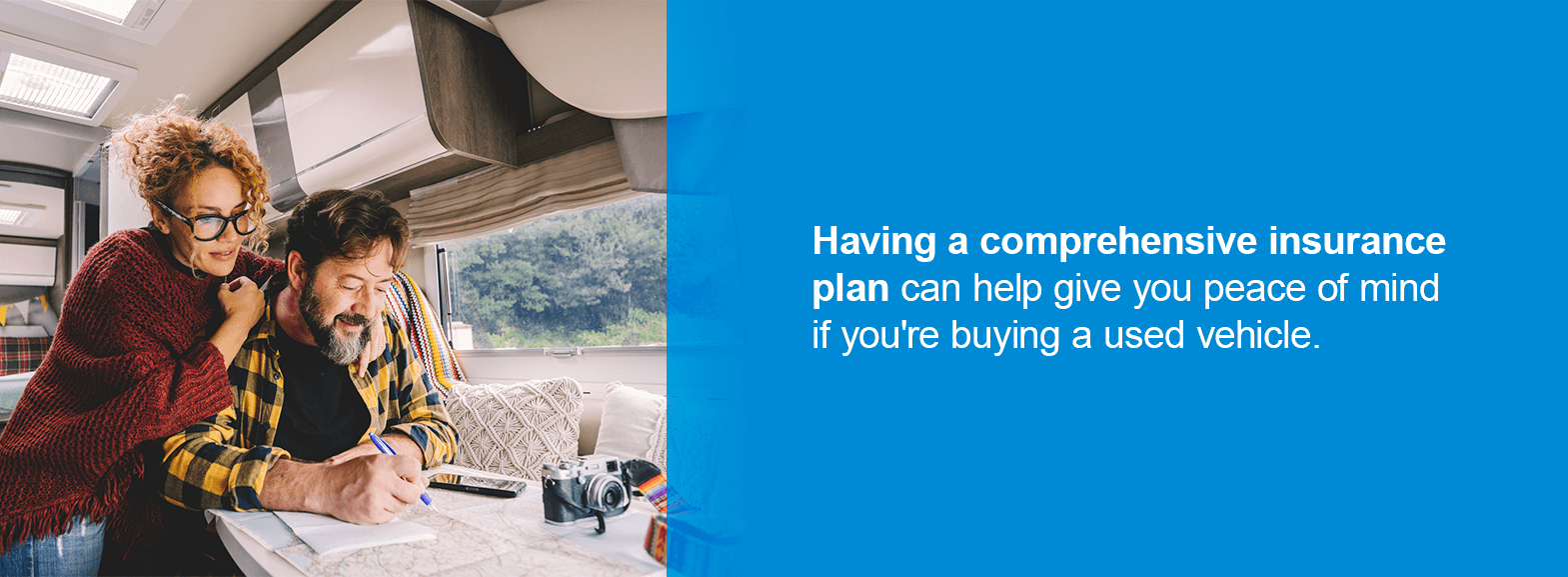
Having a comprehensive insurance plan can help give you peace of mind if you're buying a used vehicle, but only for circumstances that insurance is supposed to cover. Always read the terms and conditions so you know what kind of help is available. If the RV needed replacements before purchasing, your insurance policy is probably only going to cover so much.
RV insurance usually takes effect if an accident happens, but certain problems that older RVs tend to have are rarely covered. Even insurance for "other than collision" purposes usually only covers damages acquired in unexpected situations like natural disasters, vandalism and falling objects. This means that it is unlikely for an insurance policy to help replace outdated parts or equipment.
What Will Roadside Assistance Help With?
Roadside assistance is certainly a valuable asset to any RV owner, but much like car insurance, the help it provides only goes so far. You can call most roadside assistance agents for a jump start, for example, but if your RV fails to start frequently, roadside assistance might have a limit.
Claims for roadside assistance are distinct from insurance claims, but your provider can refuse service if they suspect that continuous problems are due to delayed maintenance or a lack of vital repairs. Roadside assistance is intended for unexpected problems that insurance is unable to cover.
Get a Loan for a Used RV With My Financing USA

If you've found our used RV buying guide helpful, consider researching for more tips on our blog. And if you're ready to buy, My Financing USA can help you meet your goals. Find the right lender for the price range you decided on, and secure a loan for the RV of your choosing.
We can match you to compatible lenders with an initial soft inquiry into your credit. Learn more about our used RV loans while you're shopping. If you're ready to finance an RV, apply for a used RV loan today.
Additional Resources on RVs:
- Guide to Buying a New RV
- Guide to Different Types of RVs
- How Hard Is It to Finance an RV?
- How to Get an RV Loan
- Financing a New RV vs. Used RV
- How to Afford the RV Lifestyle
- Questions to Ask RV Dealer Before You Buy
- Costs Of RV Ownership

